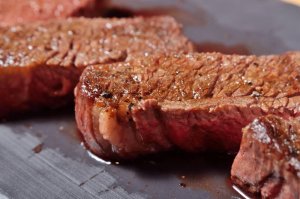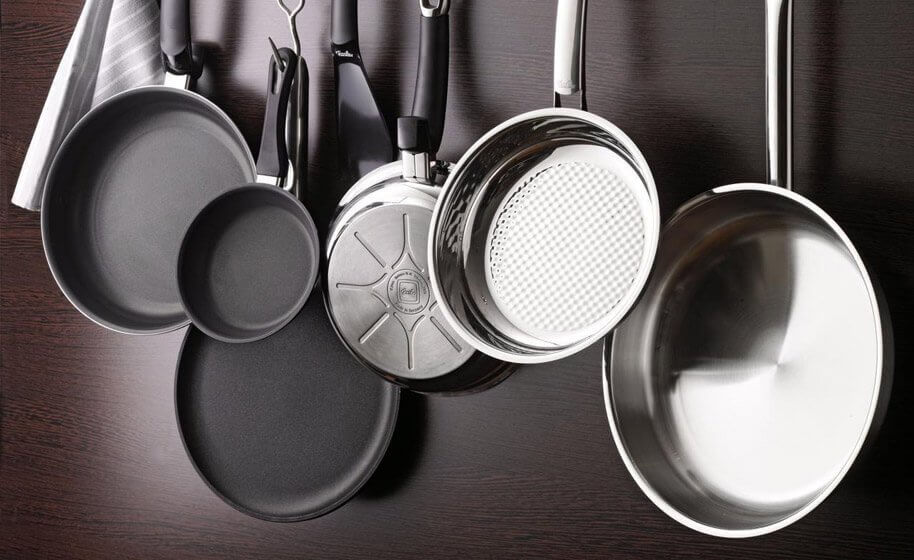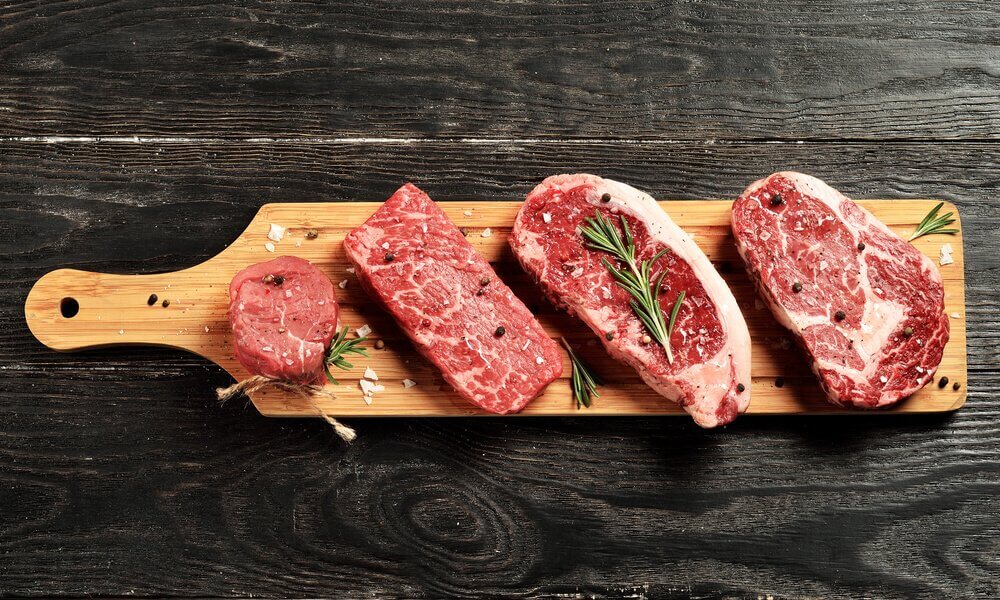How to Cook Meat Without Losing its Juiciness


Written and verified by the nutritionist Eliana Delgado Villanueva
When you cook a piece of meat, it loses moisture and shrinks to half of its original size! Once it looks cooked or roasted, it starts expelling those juices that give it a pleasant texture and intense flavor.
Why does meat release juices when cooked?
You’ve probably heard plenty of times that the human body is made up of about 70% water. The meat you use for cooking, like the flesh of any mammal, has a similar water content.
Of course, not all types of meat retain the same amount of water and it’s also true that meat from younger animals contains more. That’s why younger meat is typically juicier and more highly valued in the kitchen.
When it comes to cooking meat, you must take a few precautions to keep it from losing the water content from muscle and protein fibers, which is that gray-brownish liquid you see on cooked meat.
Read this article too: Delicious Meat-stuffed Eggplant Recipe
Avoid liquid building up in the pan

As the flesh heats up, the muscle fibers start to contract as if you were squeezing a wet sponge, and the water starts to ring out. If your pan isn’t able to keep the temperature high enough to evaporate this liquid immediately, it will build up in the pan.
The temperature of that liquid will remain high, near the boiling point of water, and it won’t get any higher until all the water has evaporated. While this is takes place, the meat continues to lose moisture as it cooks and eventually becomes completely dry.
At the same time, if you wait for all the water to evaporate, the temperature will rise again, and the outcome will be chewy meat with a nice golden appearance.
Check out this article too: 3 Ways to Marinate Meat
How to keep your meat from expelling water as you cook
Fortunately, now that you know what’s really happening, it’s easy to take certain precautions to prevent losing moisture while you cook meat. These include:
- When possible, try taking out the meat from the fridge a little earlier. Just a few minutes will be enough in the summertime, while it can take up to an hour in the winter.
Therefore, when you add it to a hot pan, the temperature difference will be as low as possible.

- Dry the meat very well with some absorbent paper before cooking and never rinse it under the cold tap water.
- When you’re cooking fillets or small pieces of meat, never salt it before cooking. This causes the meat to release the juices beforehand because the salt acts as a drying agent. That’s exactly why salt was traditionally used to preserve food.
Use the right tools when cooking
Make sure you have a large pan and plenty of heat while you cook, this will help you keep the temperature high enough. Of course, this advice can be counterproductive if you use a large skillet and fill it with several pieces of meat!
The thicker the pan is, the better it retains heat. This means its more effective at evaporating the gray liquid. Your meat will brown on the outside and stop releasing all that water once the surface is sealed.
These easy tips will help you cook meat more efficiently without losing its juices or ruining your dinner. Your recipes will have the perfect texture and flavor. Your meat will be cooked just right and everyone at the table will love it.
All cited sources were thoroughly reviewed by our team to ensure their quality, reliability, currency, and validity. The bibliography of this article was considered reliable and of academic or scientific accuracy.
- DANE. (2012). La estructura de la producción de carne bovina en Colombia. SIPSA. https://doi.org/10.1007/s10551-010-0414-4
- WATER IN MEAT AND POULTRY PRODUCTS. (Apr 12, 2017). Meat Science Journal.
available in https://meatscience.org/TheMeatWeEat/topics/fresh-meat/article/2017/04/12/water-in-meat-and-poultry-products - Sennet, R. (2014). Carne y Piedra. Igarss 2014. https://doi.org/10.1007/s13398-014-0173-7.2
- Wyness, L. (2016). The role of red meat in the diet: Nutrition and health benefits. In Proceedings of the Nutrition Society (Vol. 75, pp. 227–232). Cambridge University Press. https://doi.org/10.1017/S0029665115004267
This text is provided for informational purposes only and does not replace consultation with a professional. If in doubt, consult your specialist.








